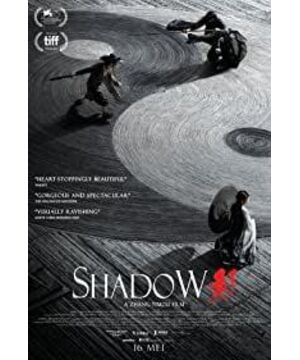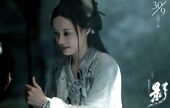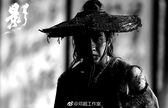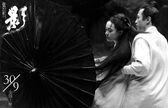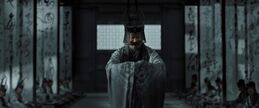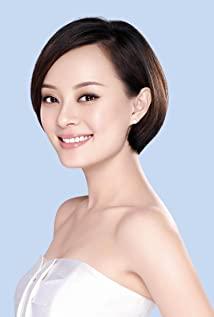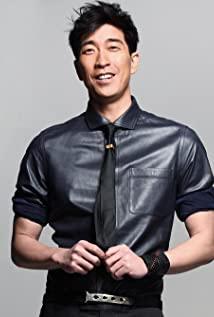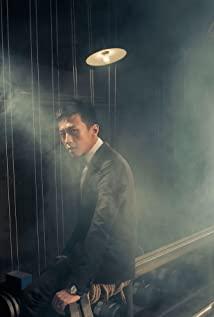In terms of aesthetics, drama and video presentation, "Shadow" may be Zhang Yimou's best work since he entered the millennium. In the upcoming National Day, "Shadow" may bring audiences a look that exceeds expectations. . Under the relatively simple creative mentality and professionalism, Zhang Yimou's Chinese-style aesthetics returned to the basics, and the look and feel of the film reached his best since "Heroes".
"Shadow" should be the work with the biggest change in visual style since Zhang Yimou started the Chinese costume blockbuster, and it is also the most extreme one in the sequence of Zhang Yimou's "Chinese style" works. From the previous posters and trailers, it can be seen that "Shadow" has always been doing subtraction, abandoning the flashy and exaggerated external visual impact of "Golden Armor". The image color of "Shadow" is only black, white and gray. Simple, but simple does not mean simple, but to make the right effort in the image aesthetics to match the whole story and the mood of the characters. The "Yin-Yang Aesthetics" in the video: one yin and one yang, one black and one white, exactly corresponds to the real body and shadow played by Deng Chao, and integrates the virtual and real in the main line of the whole story. Traditional domestic costume dramas have always tried to create a so-called sense of history by stacking a large number of visual elements, but the aesthetics of "Shadow" is a subtraction, such as the governor's room, the room is empty and there are not too many decorations, the only used It is a large number of screens. A large number of screens reconstruct a special spatial pattern. With the movement of the camera, the camera perspective creates a sense of isolation from the actors, which not only integrates into the aesthetic system of the entire film, but also adds a sense of alienation.
The story level has always been the weakness of Zhang Yimou's films. This time, the story of "Shadow" is endorsed by Zhu Sujin's "Three Kingdoms of Jingzhou". In terms of the film script level, the degree of completion is also excellent. "Shadow" better captures the quirky core of human nature under the story's power struggle, and with Zhang Yimou's best Chinese aesthetics, it brings a more unique look and feel. As mentioned earlier, the director of the entire film is doing subtraction, and although the narrative is walking, it is also trying to do subtraction. Although it is a conventional commercial film narrative, the performance is simple and in place. Personally, I like the design of the beginning and the open ending very much, and the lingering sound is endless.
What is more surprising is the performances of several protagonists, Deng Chao and Sun Li's husband and wife team, and another member of the 'Running Boys' team Zheng Kai's performances are refreshing. Especially Deng Chao, who performed the classic 'twins' drama with a real sense of difference, "Shadow" may become the pinnacle of Deng Chao's current acting career. In fact, the production of the same screen shots in "Shadow" is quite difficult. Unlike the simple separation and synthesis of the same screen, the two characters played by Deng Chao have a lot of interaction and contact in one shot. He and another actor need to play the same shot. Twice, so during the filming, the normal version of Deng Chao needs to be played first, and then the slimmed-down version of Deng Chao has to accurately play another role according to the previous shooting materials. The test is very big, and any omission of details will affect the effect of the later synthesis, but in terms of the effect of the finished film, the performance is excellent, which is also due to Deng Chao's extraordinary performance this time. In addition, the action design of this film is also full of imagination, which is refreshing. Many upgraded shots bring a quite artistic fighting atmosphere. The whole film hardly uses heavy soundtrack, mainly the playing of the guqin in three places combined with the drama. play.
The relatively long foreshadowing in the first half actually has the shadow of an anti-commercial film routine, including aesthetic choices, which may reflect Zhang Yimou's determination to create this time. From the final presentation, whether it is in terms of oriental aesthetics or in terms of story depth , "Shadow" is Zhang Yimou's most completed work in recent years. Zhang Yimou's creation this time may truly reflect the so-called "craftsman" spirit that he has been emphasizing, and even in terms of narrative choices that may affect the final box office, Zhang Yimou made the original choice from the perspective of protecting the work. , Zhang Yimou's choice and professionalism ultimately ensured the quality of "Shadow".
Zhang Yimou has always advertised himself as telling stories with colors, and the most impressive thing about "Shadow" is color. Like the girl in red in "Schindler's List", the color of the image in "Shadow", in addition to black and white, is only a bright red of blood. This deliberate design can even be seen from the color scheme of the movie's poster. Just like the word "shadow" in the film list, the desires and struggles of each character in the story are hidden in the veil, and there are clouds and smoke between the virtual and the real, just like a traditional ink painting. The blood shed after cutting with a sword is real. Of course, the most real is often the most cruel.
(Brunei)
View more about Shadow reviews


